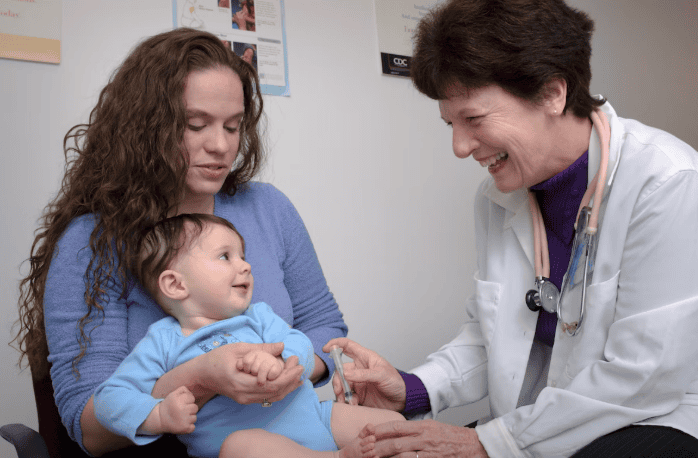The foundation of lifelong health begins long before adulthood. From the moment a child is born, their physical and emotional development intertwines in ways that define their future well-being.
Regular visits to a pediatrician in Fredericksburg are not only vital for monitoring physical growth but also for identifying behavioral and emotional patterns that influence mental health later in life.
Understanding the psychology of pediatric care allows parents and healthcare providers to recognize that treating the body and mind together creates stronger, more resilient individuals from childhood through adulthood.
The Mind-Body Connection in Early Development
Children’s brains develop rapidly, forming billions of neural connections during the first few years of life. These early experiences—ranging from nurturing relationships to consistent healthcare—can either strengthen or hinder cognitive and emotional growth.
Pediatricians who incorporate the psychology of pediatric care into their practice can help identify early warning signs of developmental delays, anxiety, or social struggles.
A child’s emotional state often mirrors their physical condition. For example, chronic illnesses, frequent infections, or even poor sleep can trigger irritability, anxiety, or behavioral issues.
Pediatric care that considers both physical and mental health ensures that treatment plans address root causes rather than just symptoms. By observing patterns in behavior, sleep, and school performance, pediatricians can provide interventions that enhance emotional stability and academic success.
The Importance of Early Intervention
Early intervention is one of the most powerful tools in pediatric psychology. When emotional or developmental challenges are identified early, they can often be corrected or managed before they lead to more significant problems.
For instance, speech delays, sensory sensitivities, or difficulty socializing may indicate conditions like autism spectrum disorder or ADHD. Recognizing these early allows families to access therapies and resources that improve communication, learning, and social skills.
Pediatricians often serve as the first line of defense in detecting these early signs. Routine checkups become opportunities to observe not only a child’s height and weight but also their behavior, mood, and interaction with parents.
By collaborating with psychologists, educators, and families, pediatricians create a network of support that empowers children to thrive. Early action can prevent minor issues from escalating into lifelong emotional or academic struggles, reinforcing the idea that proactive care is the key to long-term health.

Family Involvement and Emotional Security
Children’s psychological health is deeply connected to their sense of security at home. In the psychology of pediatric care, a supportive family environment reinforces positive coping mechanisms, while instability or stress can increase the risk of anxiety and depression.
Pediatricians who prioritize open communication with parents help families understand their child’s behavior and emotional needs more clearly. When parents are educated about developmental stages and stress responses, they can create environments that promote confidence and self-regulation.
Emotional security also shapes how children respond to medical care. A trusting relationship between families and healthcare providers reduces fear and resistance during visits. Pediatricians who use empathy, reassurance, and age-appropriate communication help children feel comfortable expressing their worries or symptoms honestly.
This approach builds not only physical resilience but also emotional intelligence and trust—qualities that benefit individuals for the rest of their lives.
Preventive Care and Long-Term Outcomes
Preventive care plays a major psychological role in pediatric medicine. Regular checkups, vaccinations, and health screenings build routines that teach children the value of self-care and highlight the psychology of pediatric care.
When kids grow up understanding that their bodies and minds require consistent attention, they are more likely to maintain healthy habits in adulthood. Pediatricians who emphasize the emotional benefits of healthy living—such as better focus, improved mood, and reduced stress—help children associate wellness with empowerment rather than obligation.
Moreover, preventive pediatric care reduces the likelihood of chronic illness, which can heavily impact mental health. Children who manage their health effectively experience fewer disruptions in school and social activities, both of which are essential for developing confidence and belonging.
In this way, psychology and pediatrics overlap to form a comprehensive foundation for lifelong wellness.

Bridging Medical and Psychological Expertise
Modern pediatric care increasingly recognizes the importance of integrating psychological expertise into medical practice. Clinics that collaborate with child psychologists, counselors, and therapists provide a more holistic approach to care.
This team-based model ensures that every aspect of a child’s development—from physical milestones to emotional challenges—is addressed with equal importance.
A child struggling with anxiety or behavioral issues benefits most when their medical provider understands how mental health influences physical symptoms. Likewise, psychologists rely on pediatric insights to tailor therapeutic approaches that complement the child’s overall health. Together, these professionals form a support system that nurtures not just recovery but long-term growth.
Conclusion
The psychology of pediatric care underscores a vital truth: early experiences shape who we become. When pediatricians approach health from both a physical and emotional perspective, they help children build strong foundations for resilience, self-awareness, and lifelong well-being.
Parents who prioritize early interventions and collaborate with their child’s healthcare team ensure that small challenges never grow into major obstacles. By understanding that the mind and body develop together, families and providers can create a healthier, happier future for every child.


